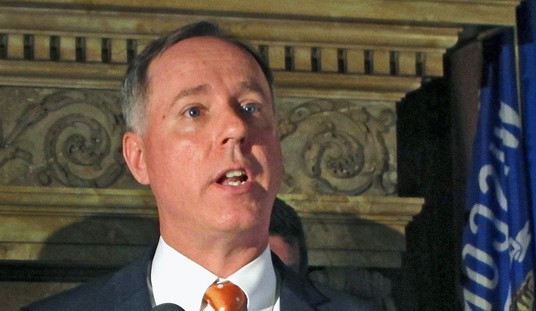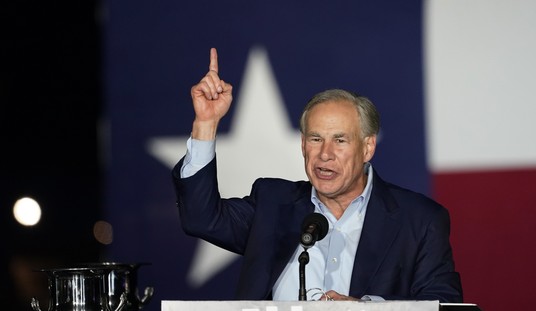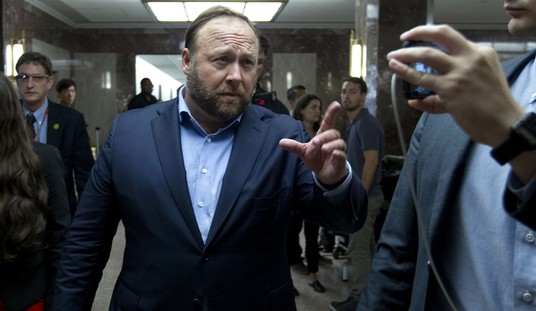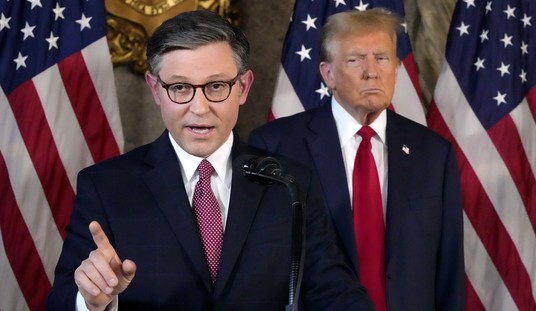This is a big deal, probably bigger than you thought, as we’ll see in a second. The Atlantic story accusing Trump of having described fallen troops as “suckers” and “losers” seemed like it had the potential to be a rare Trump scandal that might do him real damage, but the evidence that it has is scant so far. You would expect a backlash to that report to show up in military households first and foremost.
But Morning Consult isn’t seeing it. Maybe it’s because the story was easily dismissed because of its anonymous sourcing, never mind the various reports from other outlets that confirmed some of its details, or maybe it’s that opinions of Trump are so hardened at this stage of his presidency that he could burn the flag or save a drowning puppy and no one’s mind about him would be changed.
Either way, no movement, says MC:
Morning Consult daily tracking conducted Sept. 6-8 found Trump leading Biden by 10 percentage points, 52 percent to 42 percent, among 2,711 likely voters in military households — those who said they are, or live with, an active-duty service member or veteran…
The latest polling comes after The Atlantic published a Sept. 3 article citing four sources who said the president referred to people who died in wars as “losers” and “suckers.” The White House and former administration officials have strongly refuted the piece, though elements of it were also confirmed by reporting from Fox News and The Associated Press. Trump’s advantage with the group is statistically unchanged from responses gathered Aug. 31 through Sept. 2, when he led Biden by 9 points.
Why is that a big deal? Well, if you had asked me a week ago to guess what percentage of the electorate is currently in the military or a veteran, I probably would have spitballed five percent. The reality, per CNN’s Harry Enten, is more than twice that number. The number who live in military households, which includes spouses and any adult children, is obviously even greater. If Trump’s support among vets, troops, and their families erodes even a little, he’s a dead duck.
Trump can thank veterans for his 2016 victory over Hillary Clinton. According to the CCES study of verified 2016 voters, he won veterans and active military members by a 27-point margin over the Democratic nominee.
This was a huge deal for Trump because active military and veterans make up about 12% of voters. To give you some perspective, that’s a slightly higher proportion of the electorate than Hispanic voters (some of whom are or were part of the armed forces) and just a hair less than 18-29 year-olds (again some of whom did or are currently serving in the military)…
Perhaps what’s most interesting is that Trump seems to have done significantly better than Mitt Romney did in 2012 among active military members and veterans. Romney won this group by 17 points in 2012, according to the CCES. Being a current or former member of the military made someone significantly more likely to vote for Trump, even when you account for factors such as age, education, race, sex and a person’s 2012 vote.
According to Enten’s calculations, Trump lost the non-military vote in all six key swing states in 2016 — meaning that troops and vets were decisive in handing him the presidency. That’s how important this voting bloc is.
If he still leads Biden among military households and if his lead hasn’t slipped any since the Atlantic story came out, why is there a “but” in my headline? For two reasons. First, his lead over Biden is noticeably smaller than his lead over Hillary Clinton was:

Given how tight the margins were in some of those 2016 swing states, I’d be curious to know whether Trump would be president today if he had won military households by just 10 points instead of 18. Second, a separate poll that’s out today from Monmouth also contains some info on how the Atlantic story might be playing. Monmouth didn’t poll military, veterans, or military households, just the plain ol’ general public, but they were curious to know how Americans perceive Trump’s and Biden’s attitudes about the military. Does the average voter think Trump respects the military more than Biden does or vice versa? Result:

Seventy-one percent say Biden respects troops and vets versus just 55 percent who say Trump does. Biden’s overall lead over Trump (51/42) hasn’t changed much since Monmouth’s last poll so it feels safe to say the Atlantic stuff hasn’t hurt the president, but maybe that’s not the right way to look at it. When Monmouth asked people if they’re “not likely at all” to support Biden this fall, 40 percent of registered voters agreed. When they asked if they’re “not likely at all” to support Trump, 50 percent agreed. There are still a few voters out there in America who consider themselves undecided; inasmuch as the Atlantic story might have hardened opposition to Trump among people who were already leaning against him, it’s hurting him even if it didn’t cause anyone to actually switch their votes.
I’ll give you one more data point from Monmouth, not because it bears on the Atlantic or the military but just because:

Monmouth’s pollster, Patrick Murray, insists that the idea of “secret Trump voters” is a myth, unsupported by any compelling evidence. He asked about them in his poll not because he’s trying to “find” those voters but because he’s trying to gauge how predisposed voters might be this fall to believe that Trump was cheated if he ends up losing. If you’re convinced that Trump’s “real” support is much larger than the polls are measuring and he ends up losing handily, you might ask yourself, “B-b-b-but what about all the secret Trump voters?” However, the NYT’s data guy, Nate Cohn, is a little more credulous about the possibility of hidden Trumpers. They’re not secret in the sense that they’re embarrassed to tell pollsters that they support Trump, notes Cohn. There’s no evidence of that. But there *is* evidence that voters without a college degree — the heart of Trump’s base — are less likely to participate in polls. Pollsters are aware of that and try to compensate for it through weighting their samples, but it’s possible that pollsters are missing the sheer scale of blue-collar voters preparing to turn out for Trump in November. We’ll know in two months.








Join the conversation as a VIP Member